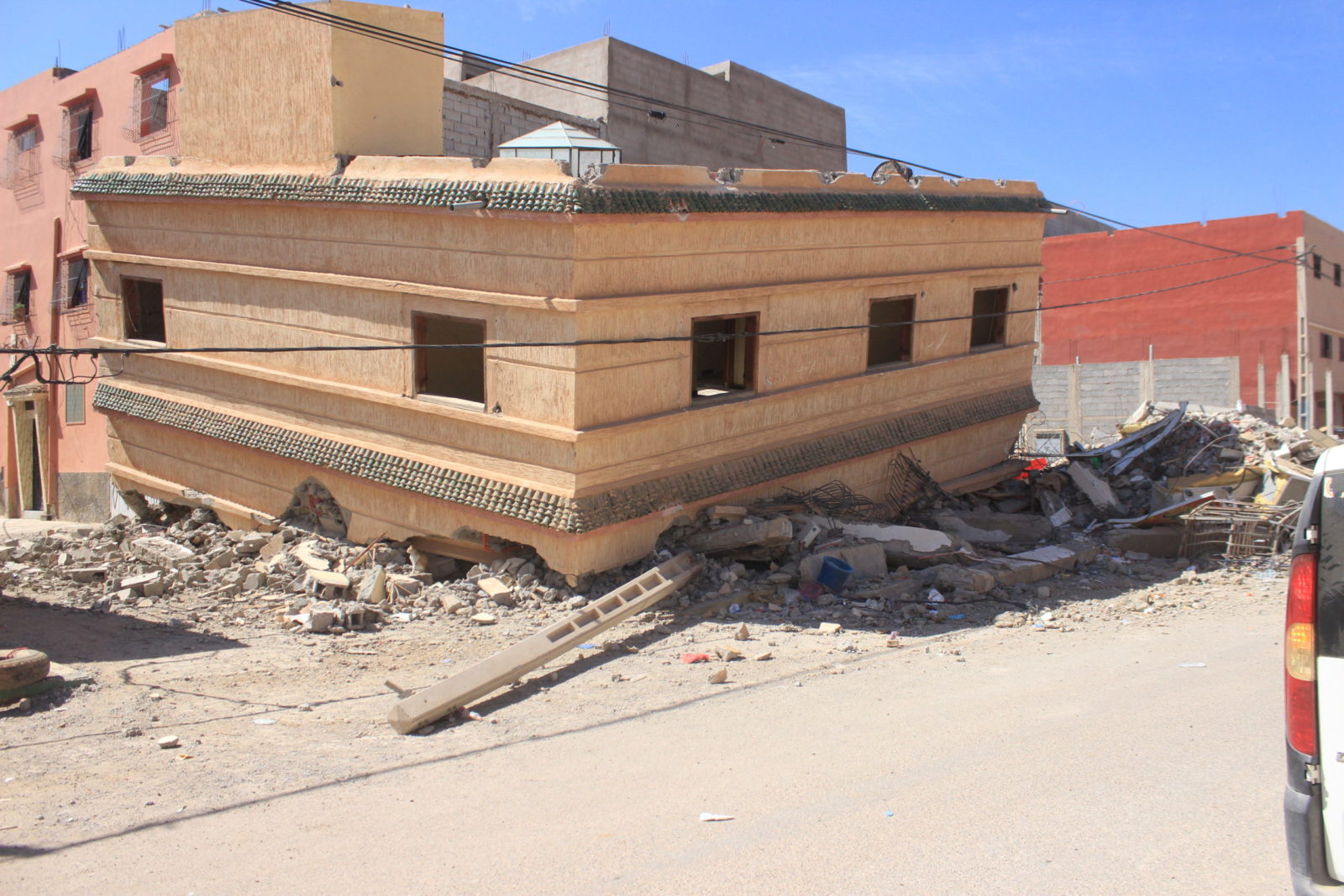This past September, Morocco was rocked by a 6.8 magnitude earthquake that killed more than 2,900 people and injured approximately 5,500 others. The earthquake struck the western side of the country, damaging remote villages in the Atlas Mountains as well as parts of the historic city of Marrakech. GAiN swiftly stepped in to assess the situation and deliver aid to the affected areas, focusing primarily on the need for shelter and blankets.
As you know, GAiN desires to bring practical relief to those in desperate situations while also spreading words of encouragement and the hope of the gospel. Based on recent updates, and in collaboration with our partner on the ground, GAiN has provided 400 packages of essential items such as food and clothing, 20 large tents, 65 emergency tarps and 20 latrines.
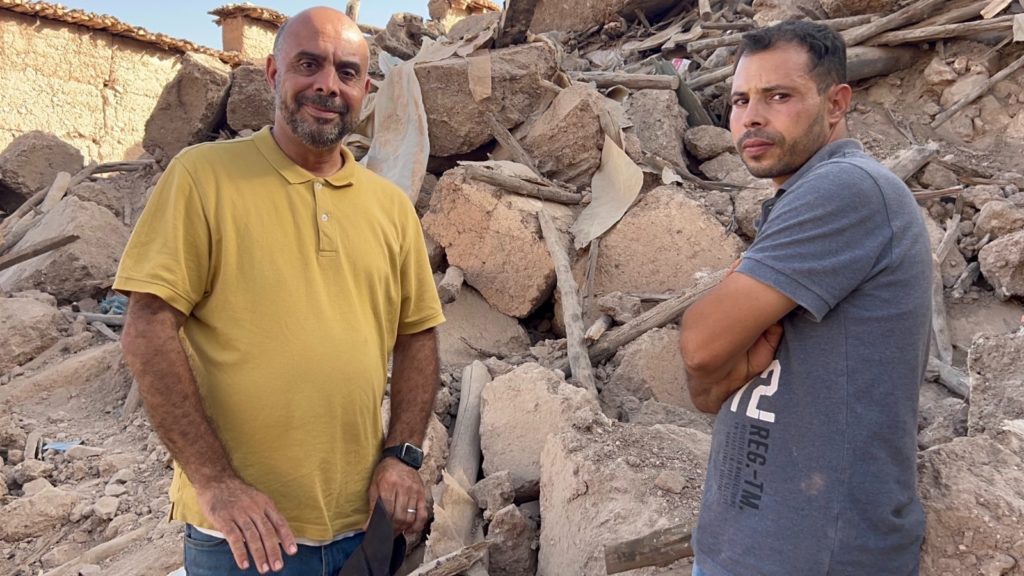
In the aftermath of the quake, our local partner on the ground was able to bless many families who lost their homes and loved ones in the earthquake. The team encountered a believer named Ibrahim in a small village on the southern side of the high Atlas mountain region. Ibrahim worked as an engineer and moved to the big city with his wife and children, but later returned with his family to his childhood village to help his father with farming.
The village used to have 40 homes, but 80% of them are now demolished, including Ibrahim’s family home. When the earthquake struck, the house could not withstand the violent shaking and eventually collapsed. Only one room remained intact – the room where Ibrahim, his wife and five children were sleeping! Thankfully, Ibrahim received an emergency tarp from our distribution and is going to fashion it into a temporary roof next to their home.
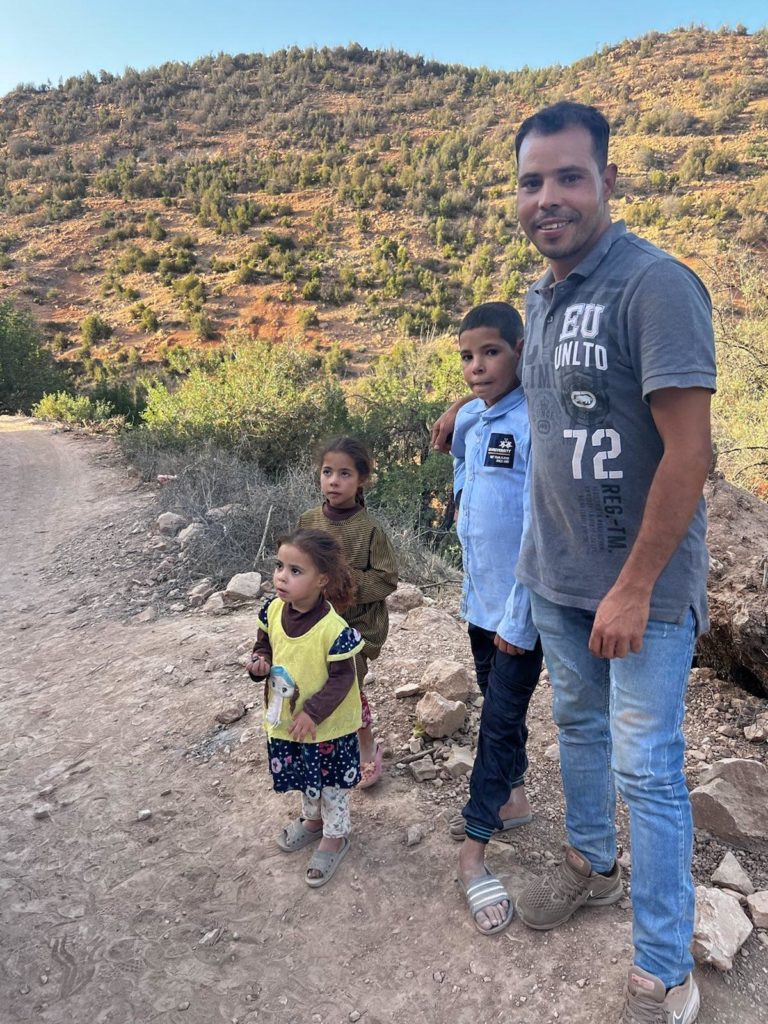
As our partner spent time with Ibrahim, he came to understand the vision and heart behind GAiN’s work in Morocco and proved to be an invaluable resource. He served as a local guide and lent the team his credibility as they travelled into different villages. Because of his knowledge and abilities, Ibrahim aided our local partner in their distribution of solar panels and lights. He also taught each person how to use them and ensured that the batteries were charged regularly.
Ibrahim’s story is a prime example of how showing people the love and care of Christ can ignite in them a desire to do the same for others. Spending quality time with Ibrahim, listening to his story and giving him practical aid models the mission of GAiN, but more importantly, demonstrates the heart of God for His children. The outflow of Ibrahim’s gratitude in the form of helping our team and the surrounding villages is a beautiful example of the ripple effect that occurs when kindness is shown to one person.
This past March, GAiN’s DART (Disaster Assistance Response Team) visited Turkey to help provide housing, including tents and tiny houses, to those who had lost their homes in the devastating earthquake that occurred in early February. One of the team members named Mitch shared about an encounter she had with a family whose home was completely destroyed:
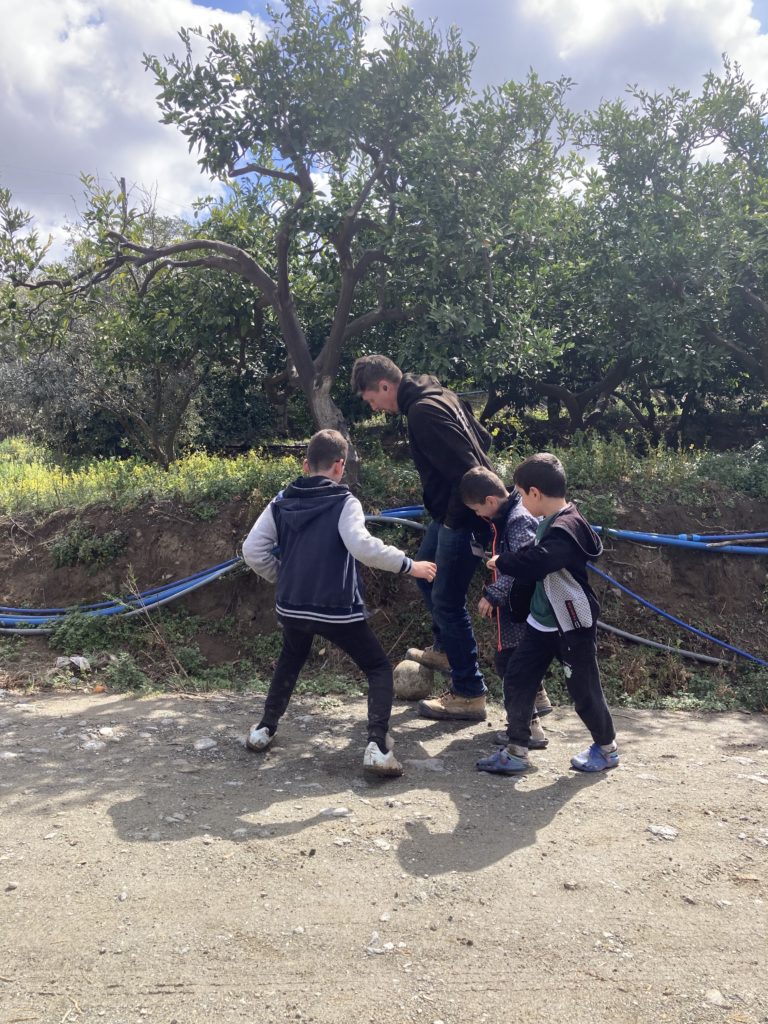
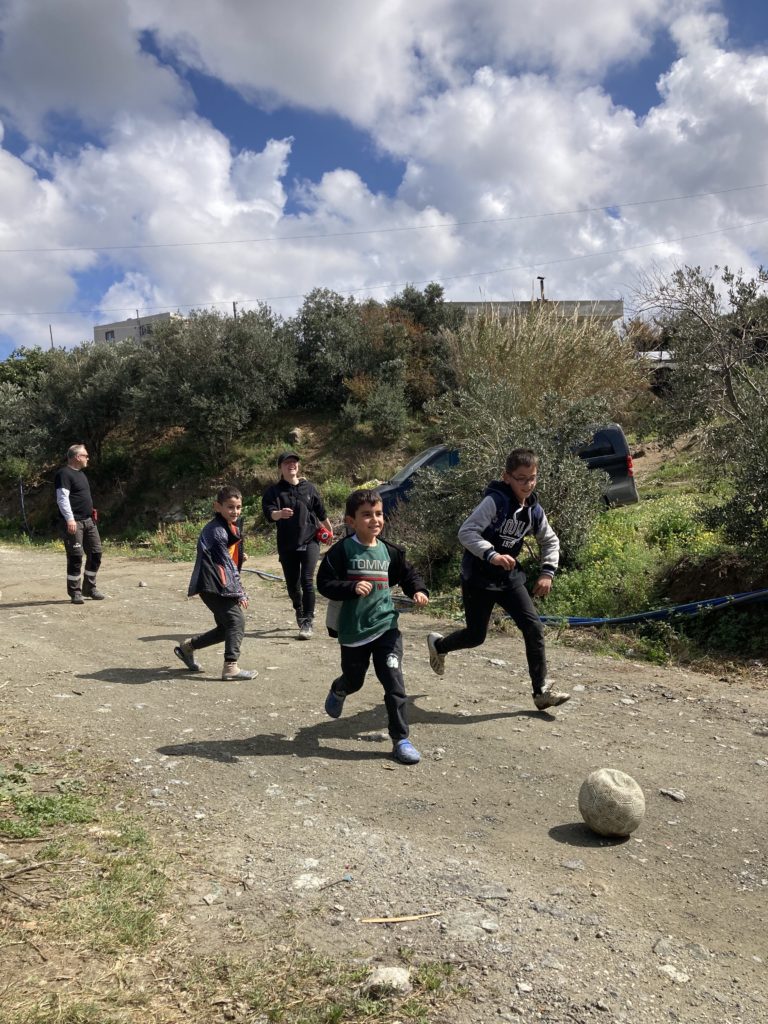
Tulay is 32 years old and a mother of three gregarious boys. We met the family and a lot of other people because we were about to set up a tent. When we arrived, the boys (aged 9, 10 and 11) were in the middle of an intense football match with questionable rules. Since we had to wait for our work materials to arrive, we joined them.
For a moment, the world seemed like a less devastating place as we were running around in the sun, giggling and laughing every time one of the little boys lost his shoe in the dirt.
“I want to team up with you,” one of them said to me through a translator app and immediately his little cousin jumped in and said he wanted to be part of the team too. So we continued kicking a flat ball into a non-existent goal, losing shoes and running into each other.
When we eventually sat down and shared some freshly baked bread, the family and I started talking. “I was all alone with the kids on the night of the earthquake,” Tulay shared. “Our house got destroyed completely and now we are staying in this tent together with our neighbors.”
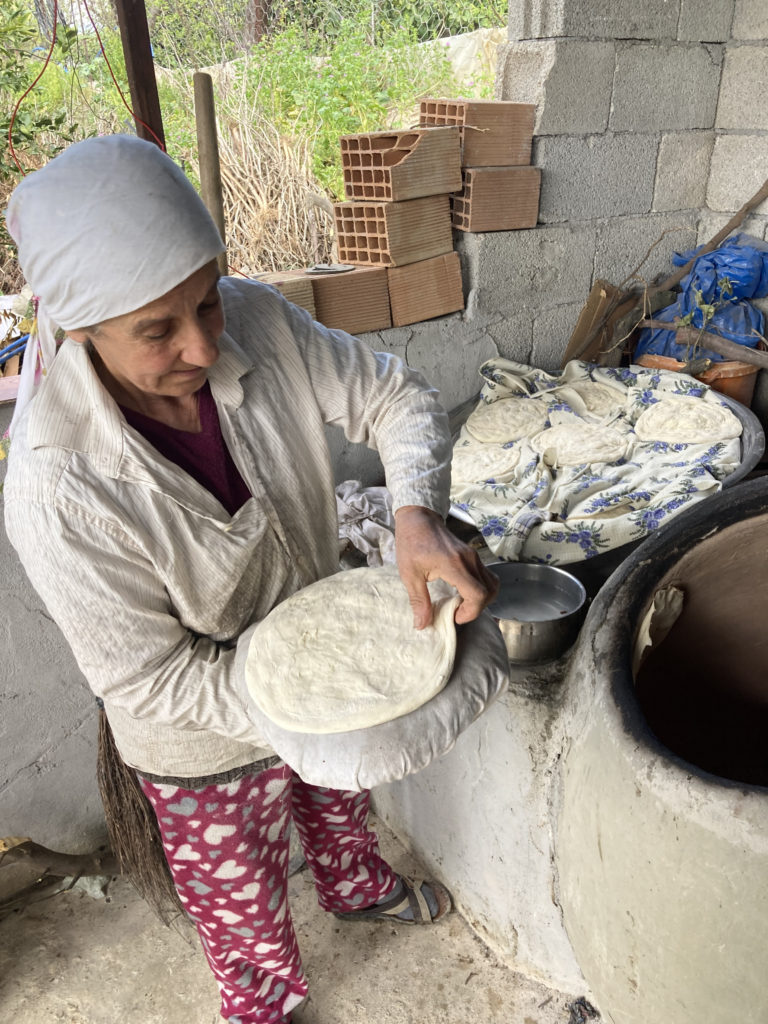
When I asked one of the boys where he went to school, he told me that the building was destroyed so there is no school for him to attend right now. I asked him if he liked going to school and he simply stated: “Medium.”
This somehow made me laugh because he was exactly like a 10-year-old boy was supposed to be: playing football and not liking school too much. At the same time, it made me sad to see how drastically the lives of these little boys have changed, and the fact that there was nothing I could do about it.
We sat there for a while, chatting through a translator app and sharing bread with their 7-year-old cousin who would only take a bite if I had one first. My poor Turkish made them laugh. In this small moment of peace and contentment, I hoped they could forget what they had been through — even if it was only for a second.
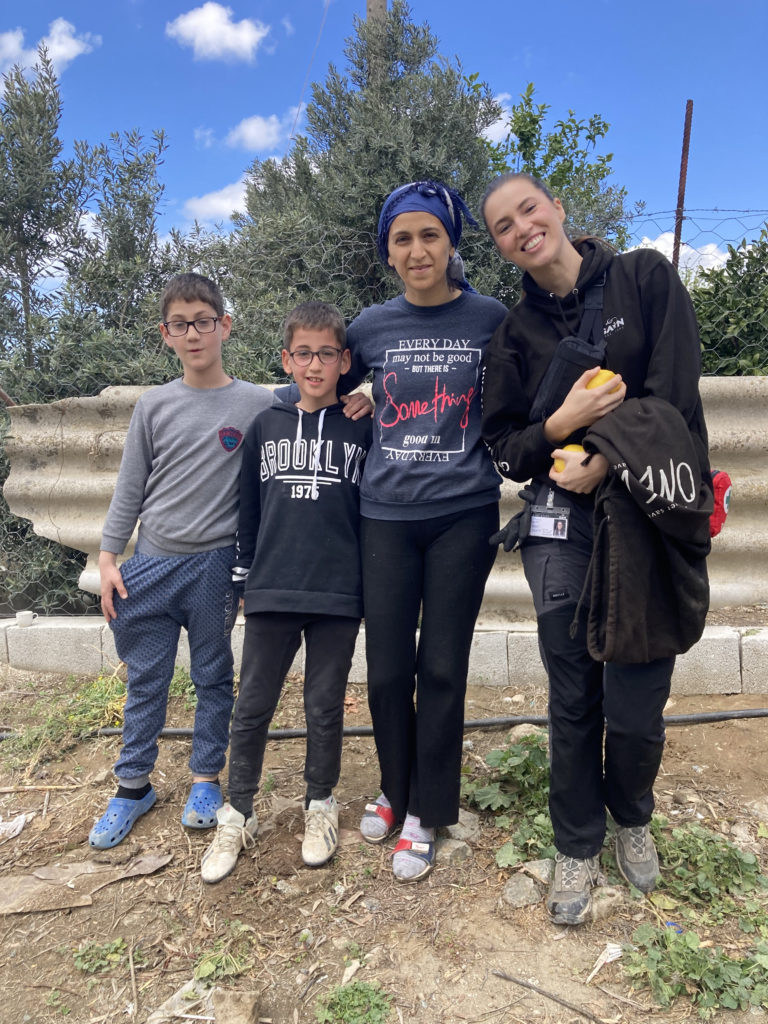
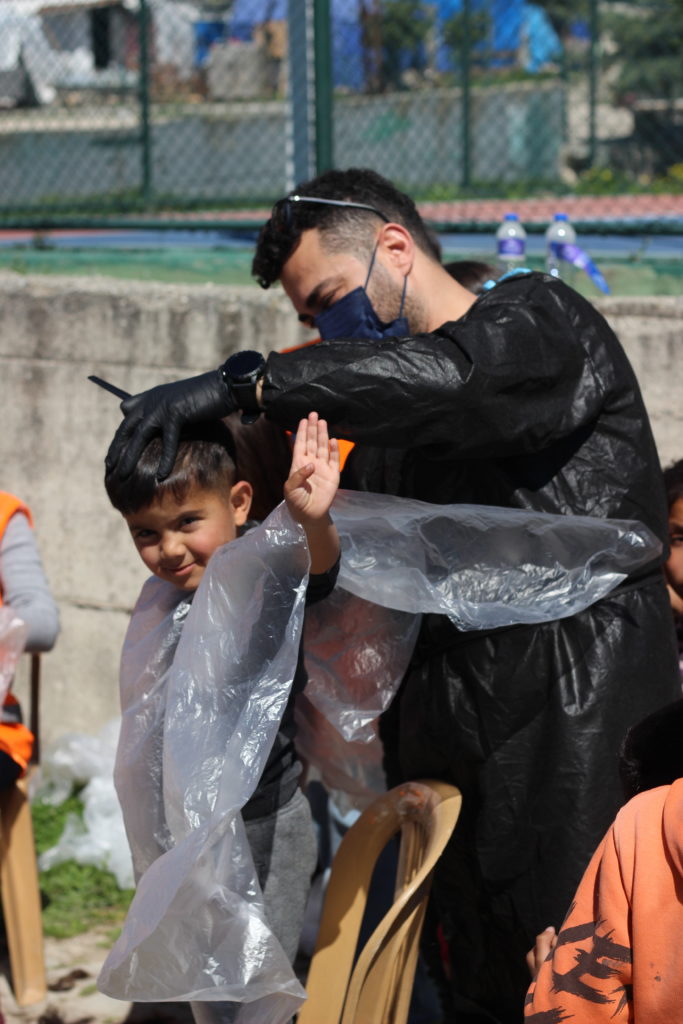
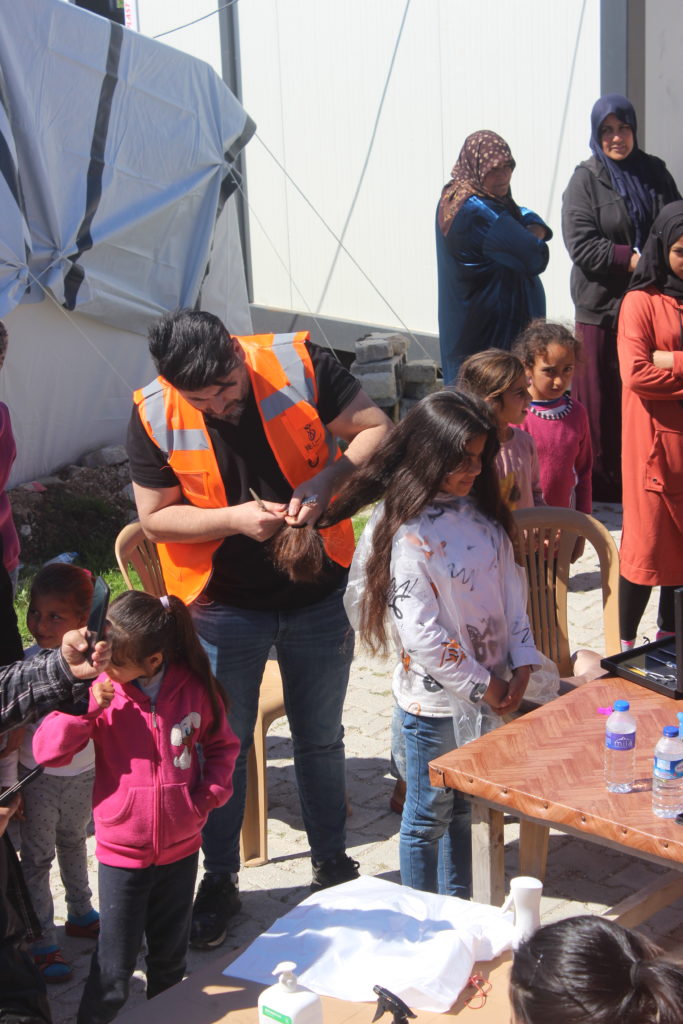
There is so much power in restoring human dignity.
Our DART team who were responding to the Turkey earthquake was able to participate in a distribution with GAiN’s local partner, First Hope Association. With their local volunteers and staff, we distributed hygiene kits as well as food and blankets for families in a community outside of Antakya. However, it wasn’t what we were able to give that was the center of attention. First Hope Association had a crew of professional barbers on site, who were giving children haircuts. The earthquake happened over a month ago, and a nice trim for many of the children was greatly appreciated.
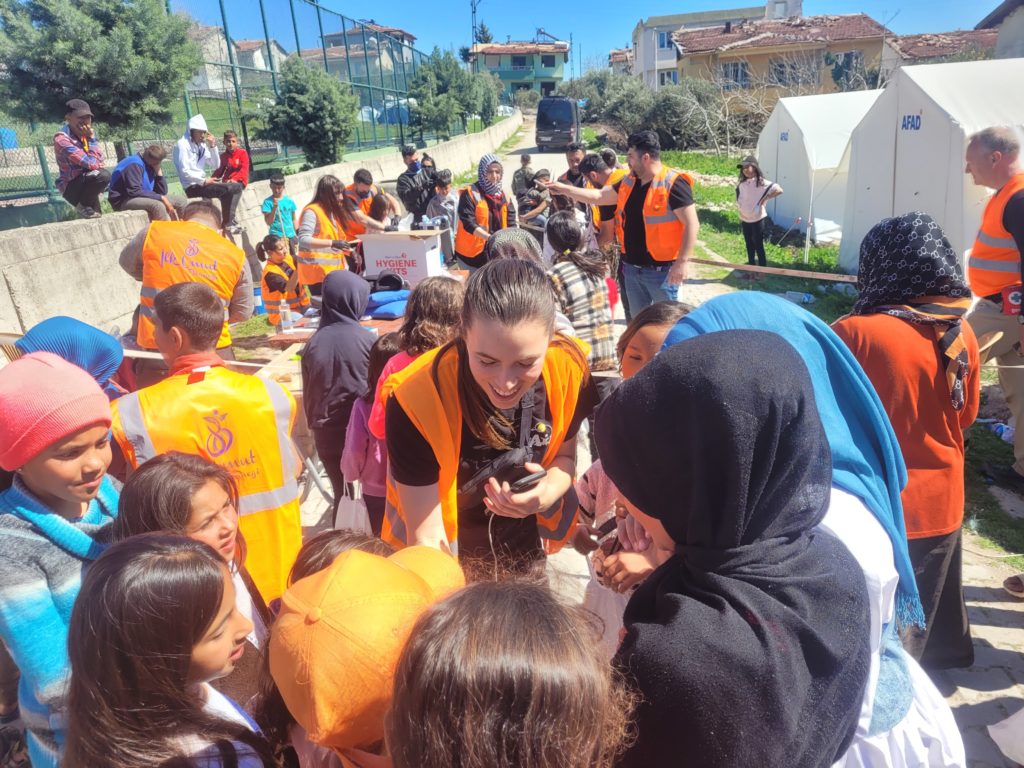
The line for haircuts continued to get longer, and each trim brought a smile to the child and their parents. As they waited patiently for their turn, Lucia from GAiN Spain connected with many of the children, teaching them a couple key Spanish words, along with some numbers and colours. As she recited them over and over with the kids, you could hear their joyful cheering as they remembered numbers like ocho and nueve.
It’s incredible how such a simple gesture like giving someone a haircut can restore dignity and joy to a community surrounded by brokenness.
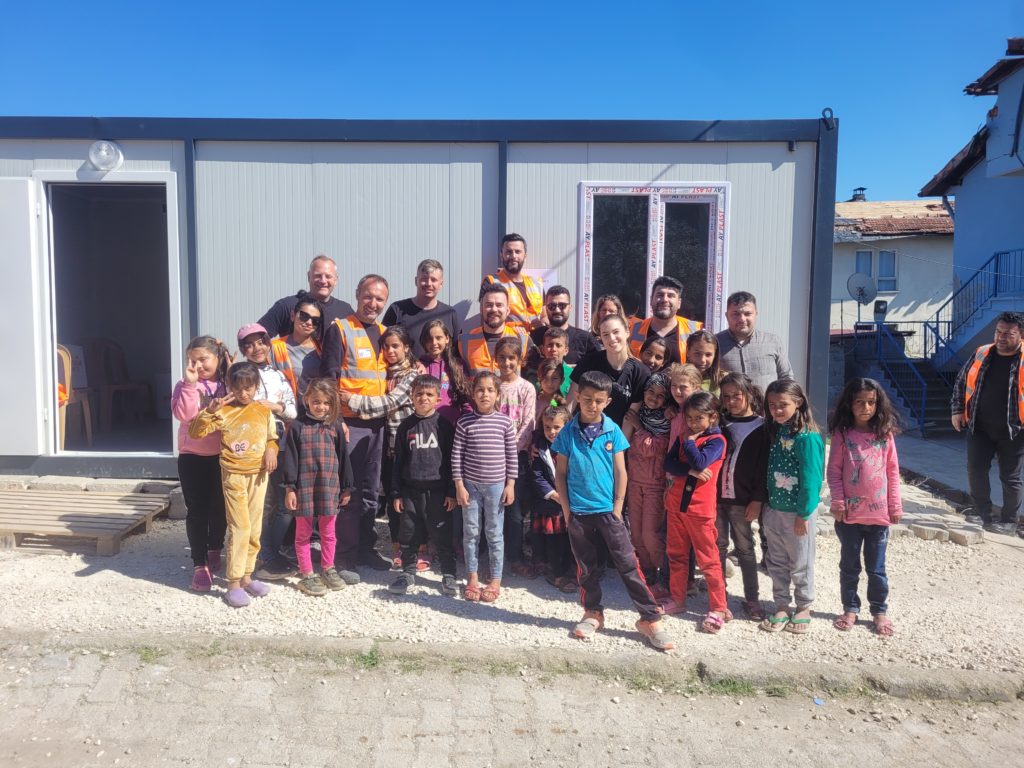
“I can’t do everything, but I can do more than nothing.” – Ian Daniel, founder of He Had Compassion
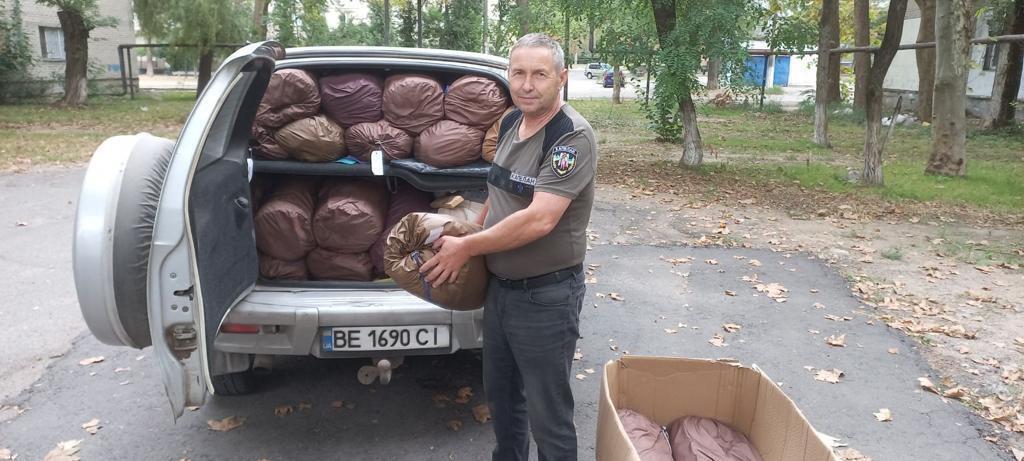
Since the war began in February 2022, Global Aid Network (GAiN) has sent disaster relief to Ukraine to help shed light into the oppressive darkness that has become people’s waking reality. In addition to GAiN Germany and GAiN Netherlands, our ministry has partnered up with a local non-profit organization called He Had Compassion to bring supplies to those who are desperately in need of food, clothing and shelter.
The founder of He Had Compassion, Ian Daniel, went on a trip to Ukraine this past January where he distributed aid alongside his friend Oleg, a pastor from Ivano-Frankivsk. Ian had become acquainted with Oleg before the war started and had been sending him money to support his church in Ukraine. When war broke out, the need for support increased, as Oleg’s church began housing, feeding and caring for a steady stream of refugees.
One group of refugees in particular is called House of 64, and is primarily made up of orphans and widows who come from the occupied east and are in need of all basic necessities. In addition to providing for these refugees, Oleg also wanted to use his church’s key positioning in western Ukraine to move and deliver humanitarian supplies to other locations in Ukraine, but didn’t have the money or vehicles to do so.
In response to this need for practical supplies, money and a transportation system, He Had Compassion was born, with Ian serving as its founder and leader.
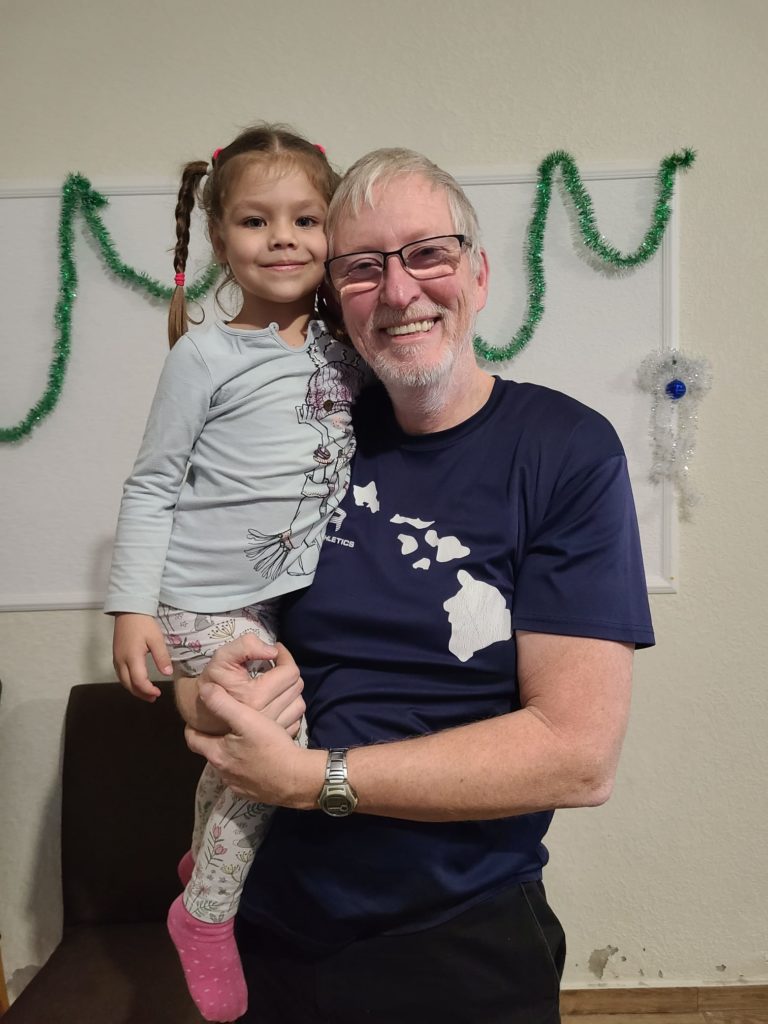
“I just said ‘This is what I’m going to do and if anyone would like to support us, I welcome you to do that,’” Ian shared. He went on to say that He Had Compassion now consists of 100 supporters, ranging from church members to friends to business clients. One lady from his church makes handmade dish cloths and sells them by donation each week, giving all proceeds to Ukraine.
GAiN’s COO, Lindsey Schacter, became acquainted with Ian through church. After hearing about the mission behind He Had Compassion, GAiN decided to team up with the organization with the goal of helping Pastor Oleg care for House of 64 as well as transport goods to different cities in Ukraine.
The primary purpose of Ian’s recent trip was to set up a solid system for obtaining supplies and transferring it to the border between Poland and Ukraine. Throughout his time there, he bought materials like sleeping bags, hot water bottles, food and generators, and also obtained two vans and two trailers to transport the supplies. Pastor Oleg picked up the supplies from the border and stored it in warehouses near his church. From there, the supplies were distributed to occupied places in the east, including Mykolaiv, Kherson, Kharkiv and Volchansk.
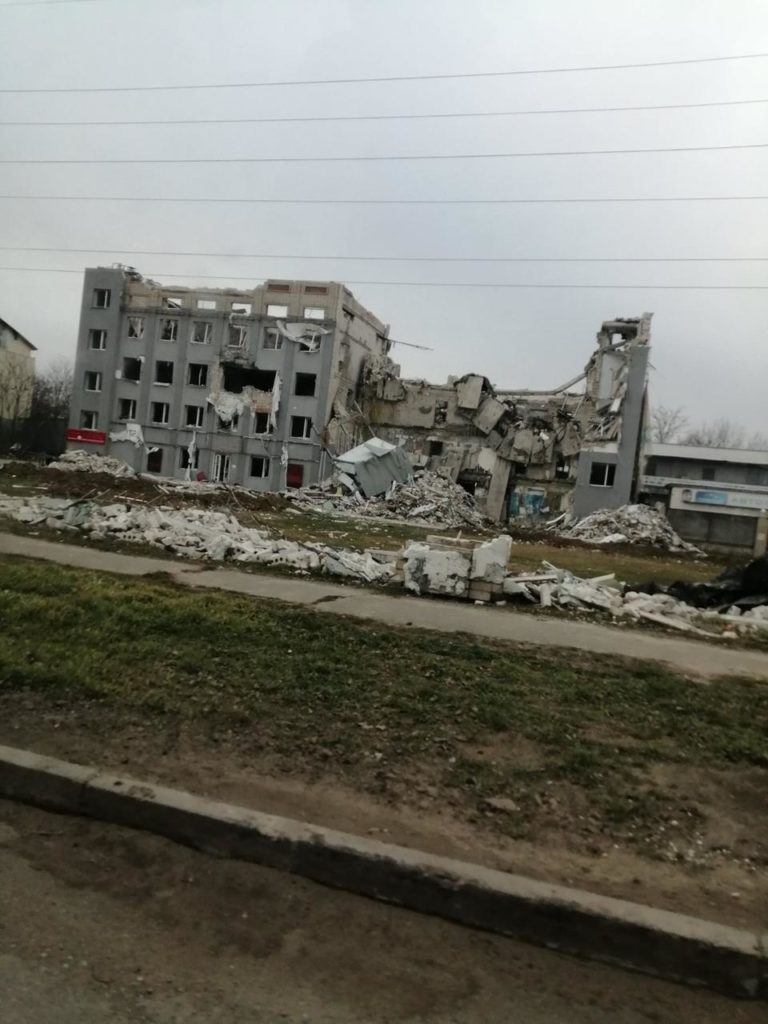
During Ian and Oleg’s first trip to deliver supplies to the border, however, things didn’t go as planned. Ian shared that they had approximately $72,000 worth (50,000 €) of supplies (including 1,000 sleeping bags) to bring across as well as the van and trailers, yet people at the border would not let them through. They checked their trailer and credentials half a dozen times, even though Ian and Oleg explained that the gifts were from people in Canada and meant to help those in Ukraine that were without food and shelter. Ian, Oleg and his family were stopped at the border for 5-6 hours in freezing temperatures–long enough for Oleg and his entire family to become sick with pneumonia. Finally, the border guards decided to let them through.
“One of the border guards–a great big burly guy– was so pleased with the decision to let us through, he came out to us and said something in Ukrainian and gave me a hug! God put his fingers on the scales and let us in,” Ian recalled with a smile.
Ian, Oleg and his family made it back to Ivano in time for Christmas morning. Since Oleg was sick, he asked Ian to share a message to the church on his behalf. Ian shared about peace, and although it seemed like a risky topic for a congregation in the middle of war, many people wept and were blessed by his encouraging words.
The war has undoubtedly made the atmosphere in Ukraine incredibly bleak. Ian explained that air raid sirens are going off constantly and buildings everywhere are destroyed, with bodies buried beneath the rubble. He shared that three of the places he visited were shelled 36 hours after he left. Yet in the midst of their concern and stress, people have great heart and are extremely thankful.

Ian shared numerous stories about how touched people were by the practical items supplied by GAiN. When he visited a place where supplies had been distributed, people would swarm his van to personally express how grateful they were for the provision of hot water bottles, food, sleeping bags and warming centres to charge their phones and rest. In Mykolaiv, their team was also able to supply 18 cubic metres of firewood to a network of churches that in turn delivered supplies to the entire community. People would come to the church and ask, “Who is this God who hears their cry when they are cold and hungry, and brings firewood to their door?”
After talking with a young woman from a village near Mykolaiv named Anna, Ian also learned that women were in desperate need of feminine hygiene products. With the funds covered by He Had Compassion and GAiN, Anna put together 60 beautiful packages for women in her community, including cream, nail files and other hygiene products. She is planning a meeting where all the ladies will gather at the church and the pastor will give a devotional and pray over them.
Out of their gratitude for the work of He Had Compassion and GAiN, Ian was constantly blessed by a network of people throughout his journey. Wherever he went, people would invite him to stay for a meal and to spend the night in their home. On one occasion in Berlin, a 75-year-old man from the church in the area told Ian and his team to follow him home because he and his wife and their friends had prepared a meal for them. He also insisted that they spend the night, and served them breakfast at 5 am the next morning so that their team could get on the road early. Ian described the meals he received as being “fit for a king.”
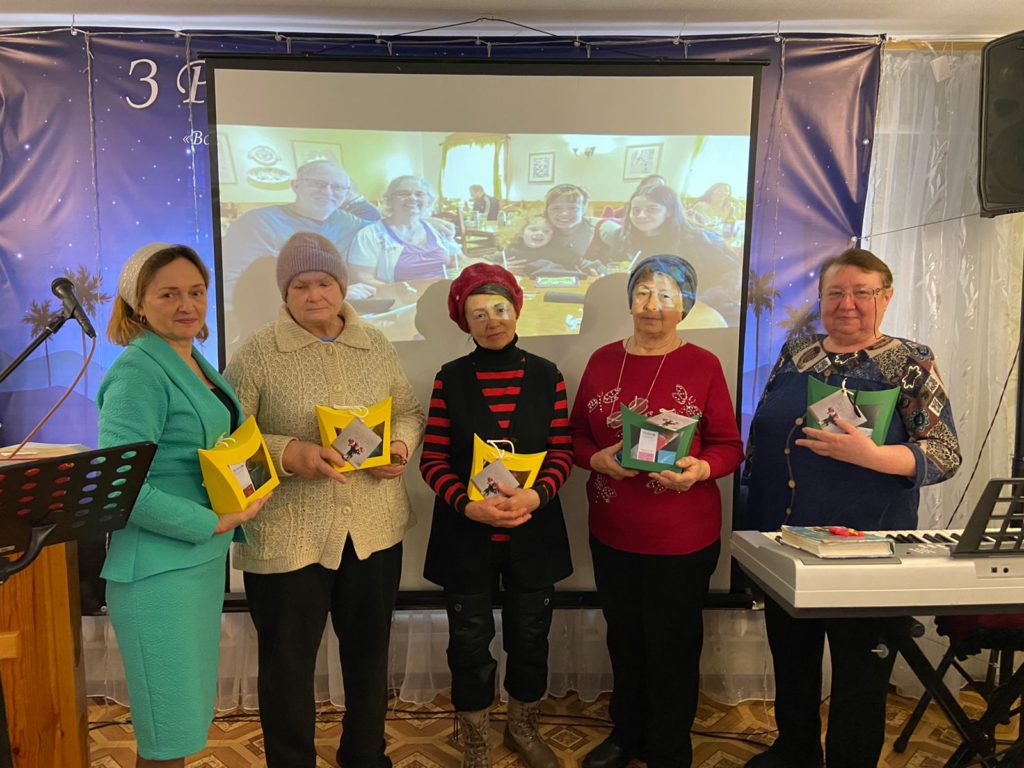
“They are giving you some of the last things that they have, and want you to know beyond a shadow of a doubt that you are changing lives and touching hearts . . . For several days, we didn’t have to pay for a meal or a night’s accommodation. People kept sending us to their contacts,” explained Ian.
GAiN is deeply grateful for the opportunity to be part of this process of delivering much-needed supplies to the places of greatest need in Ukraine. Ian described the system as similar to an underground railroad of Christians helping refugees go one way, with those bringing humanitarian aid going the other way. His testimonies of successfully arriving in the country and witnessing the gratitude and joy of those lives he touched are stunning reminders of God’s faithfulness.
“We just came across story after story of people. You think you’re going to do logistical stuff, but really you’re going to hear and touch people’s hearts, people that God has put in your path. You end up coming home with a collection of contacts with people you want to keep in touch with. That’s what matters the most,” Ian shared.
Ian has just returned back from another trip to Ukraine, disturbing humanitarian aid and providing “Trauma First Aid” for people through seminars and discussion. He has reported that so far, these seminars have had an incredible turnout. People arrive early and the room is always packed! Ian shares that there have been opportunities to pray for people. It is encouraging to hear that people in Ukraine are eager to process what they have experienced and receive emotional support as a community.
We are thankful to all our partners who make these kinds of missions possible. Without your constant support, the stories that stem from our partnership with He Had Compassion and GAiN offices worldwide would not exist.
Tyler C., one of the team members of the DART Team, recounts his interaction with a family in Turkey who lost their home because of the earthquake:
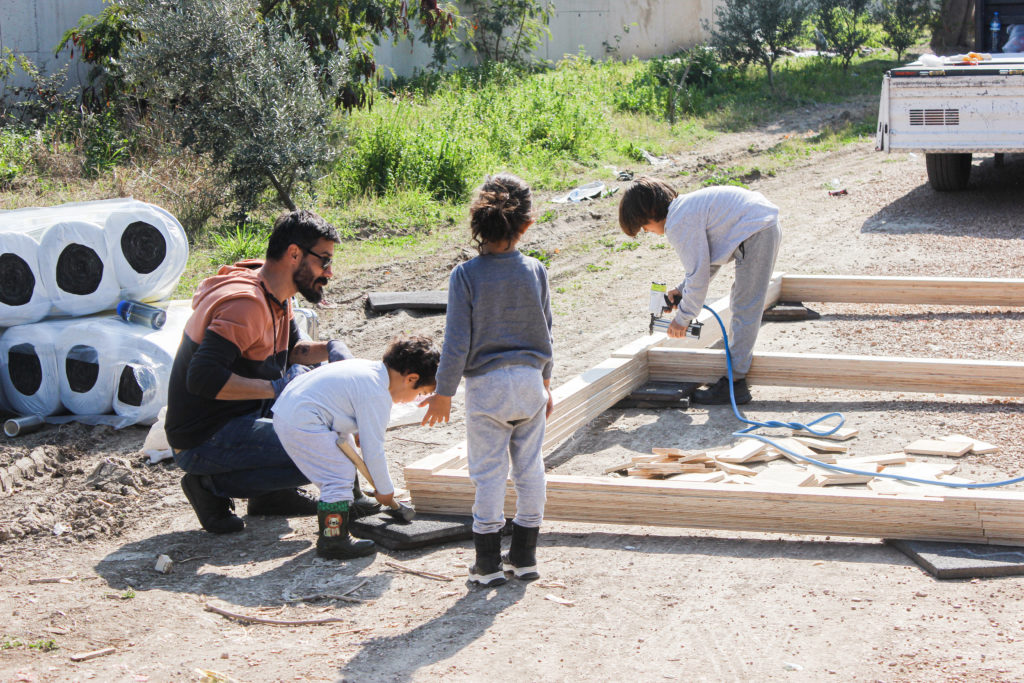
“Are you afraid of another earthquake?” I asked 10-year-old Taner* from Iskenderun.
“Maybe after the first three – but not anymore,” he replied.
We passed the phone back and forth, working in Google translate.
Taner and his family lived on the first floor of an apartment building in Iskenderun, and while his building remains standing, it’s not safe to return. After the first earthquake, Taner and his entire family slept on their first-floor balcony in case something else happened. They wouldn’t go into the kitchen because they were afraid the refrigerator would fall on them in the next quake.
“For 1 minute and 45 seconds, the ground was crazy. I was very scared. You could hear the walls cracking,” Taner shared.
The family is now staying with Taner’s aunt, who lives in a newer building that is still safe. His grandmother Selah* received one of our tiny houses. Taner was a very helpful builder, with his father and uncles also supporting.
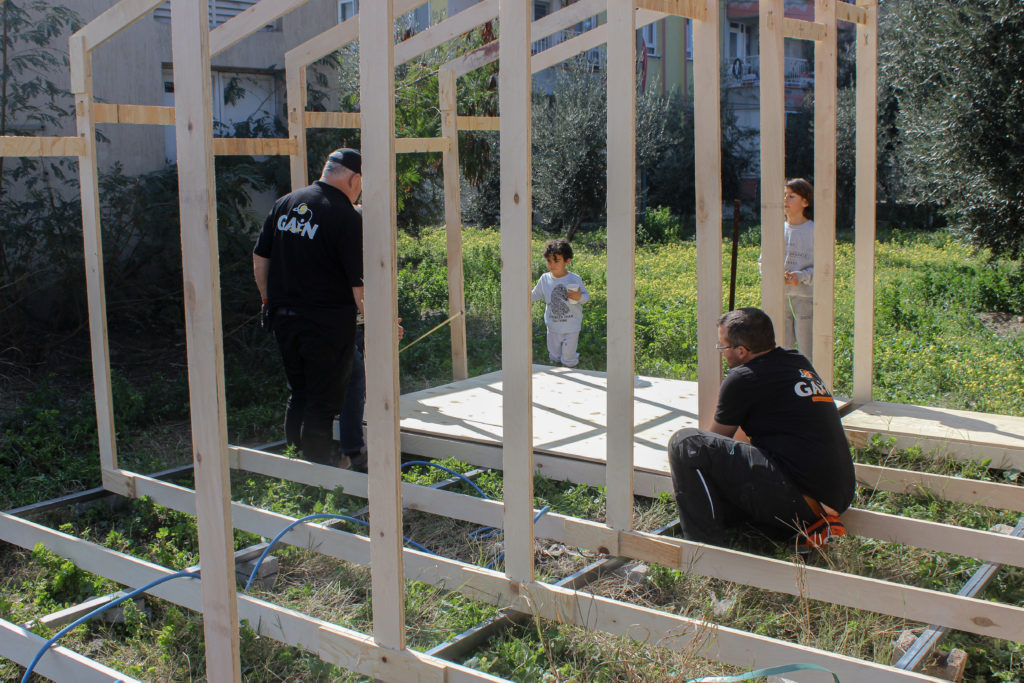
When we had a break, I told him that we were friends now, but he stopped me and said to me: “No. We are blood now.”
He continued to ask me why we came to Turkey and if we were afraid. I told him honestly that I was a little scared. But we know that the people of Turkey are in need of our help, and we will be here for them.
He gave me a big hug and thanked me again for coming.
*Name has been changed
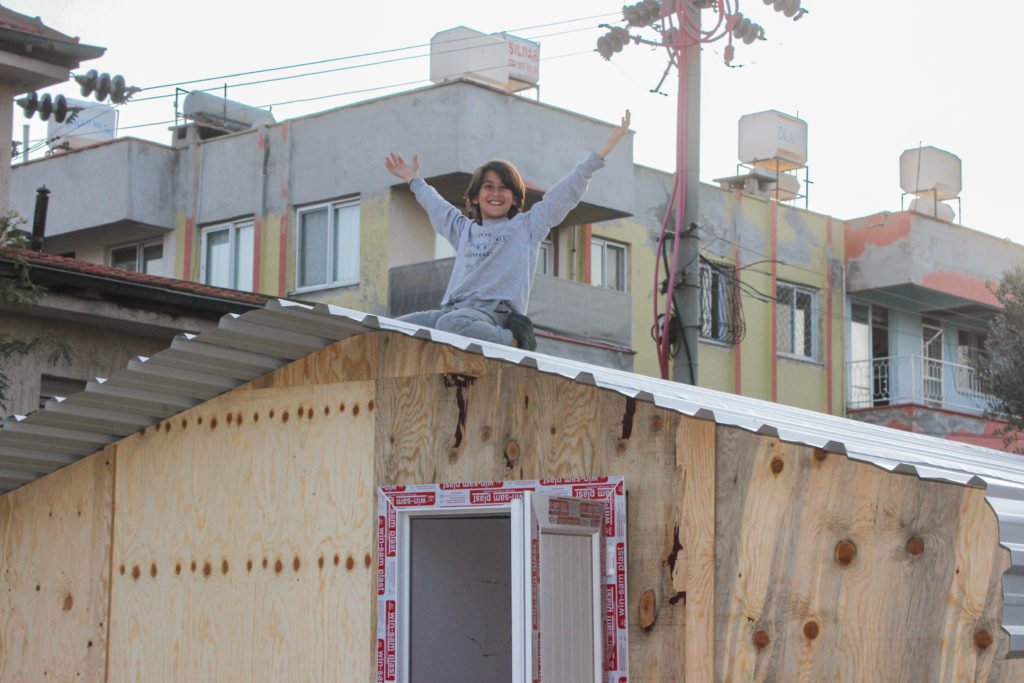
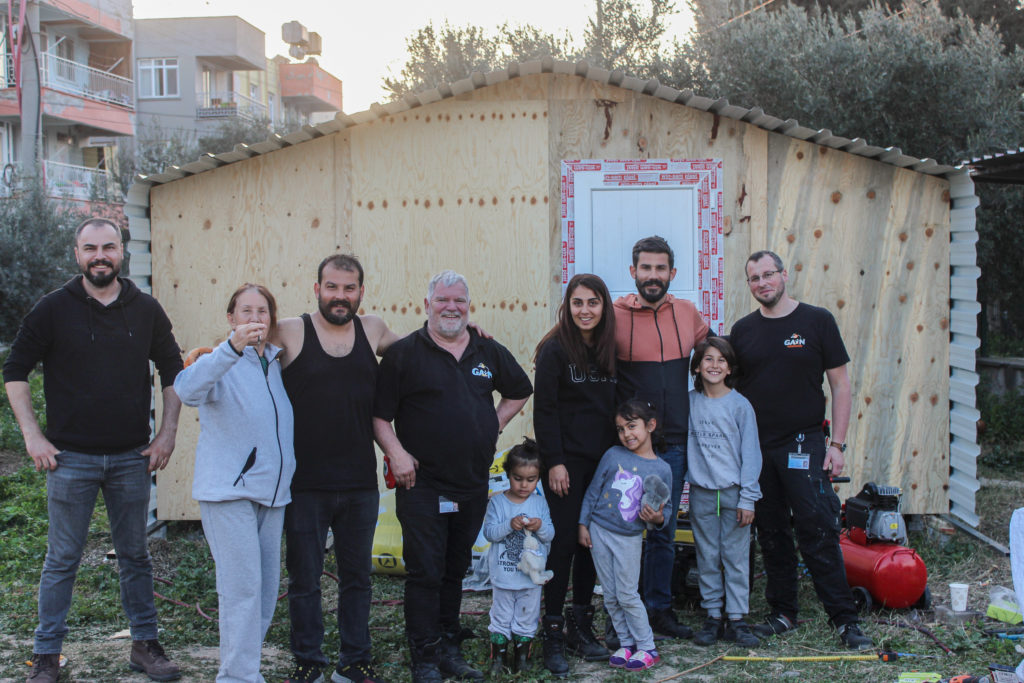
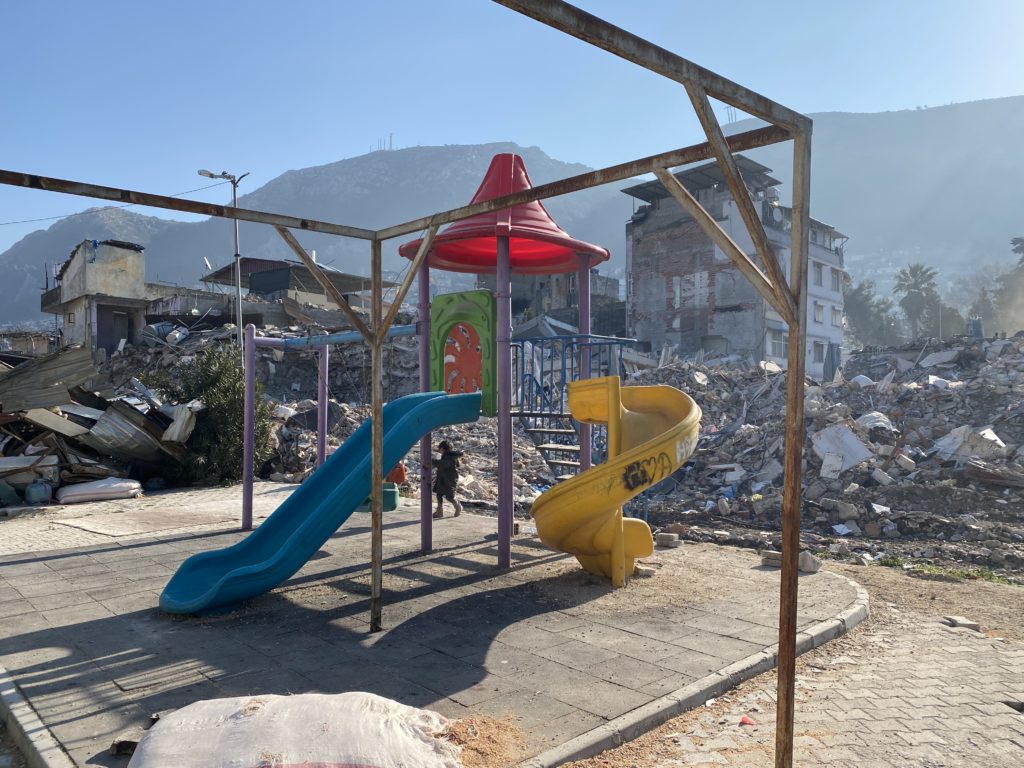
A colourful children’s playground stands firm amidst the waves of rubble from collapsed buildings in Antakya, Turkey.
For Beste, now the only child around these streets, having a playground is a miracle that helps to distract her from the traumatic experience she lived only a few days ago. Swinging and climbing up the slide is one of the very few things she can do to keep the memories away.
“When the evening comes, she tells me: ‘Daddy, let’s go to a house that does not shake,'” said Memduh, her father. “She does not like the tent because sometimes there are bugs inside”.
Debora, a Spanish missionary who lived for decades in Türkiye, kept on asking the DART team not to forget about playing with the children and spending time with them because they are struggling heavily inside.
“Psychologically, [my daughter] is gone. She is suffering,” explained Memduh.
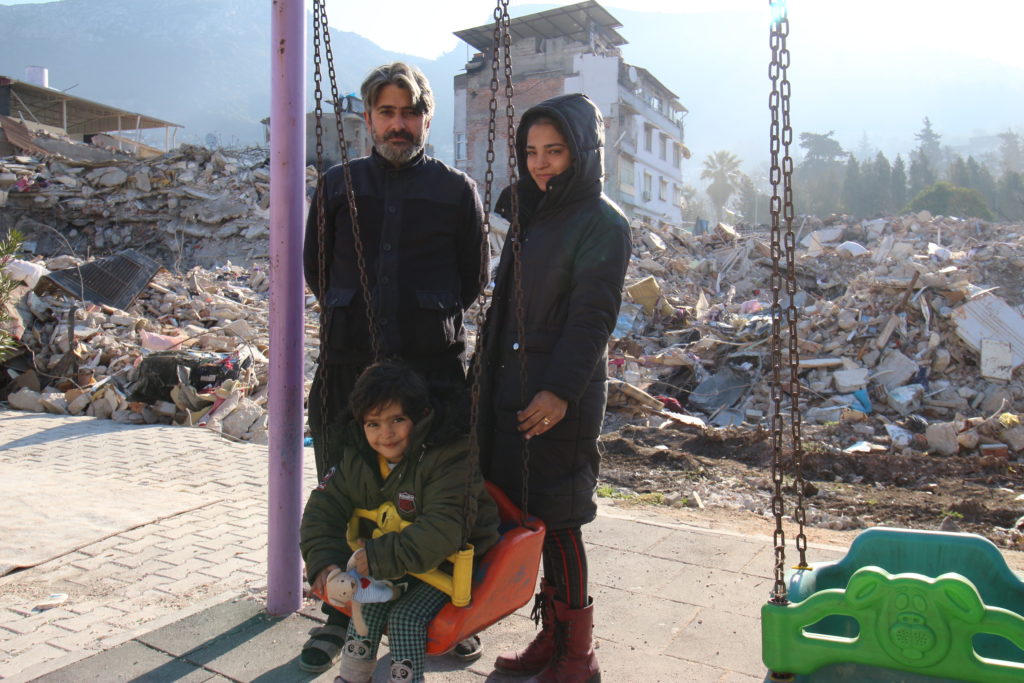
Memduh (47), his wife Serpil (26) and Beste (4), were inside the house when the devastating earthquake hit in Türkiye. The wardrobe fell on Memduh and his hand was seriously cut, but otherwise the family was unharmed. Their house did not collapse, but was severely damaged. They now reside in a tent in front of the house.
“We have not been able to overcome it. Even when we are in the tent, we are still scared,” said Memduh. Later on, he added,“Psychologically, we are very hurt. Which father wants his child to live in these conditions? But we don’t have anything else”.
Sadly, his statement rings true. The family no longer has a roof, running water, electricity or food. Everything they have now comes from the tremendous help that local pastors, Elmas and Hamdulah, are providing for their neighbours. Elmas and Hamdulah are the pastors of one of the few churches in Antakya, and their house is next to Memduh’s house. Thankfully, their house didn’t collapse either and they are now using it for storage and a kitchen. This is where GAiN’s assessment team stayed too.
“It is Elmas, Hamdulah and the church that has helped us. Nobody else has really helped us. [It] is thanks to her that we are still here. Because nothing came to us from the authorities,” the family shared.
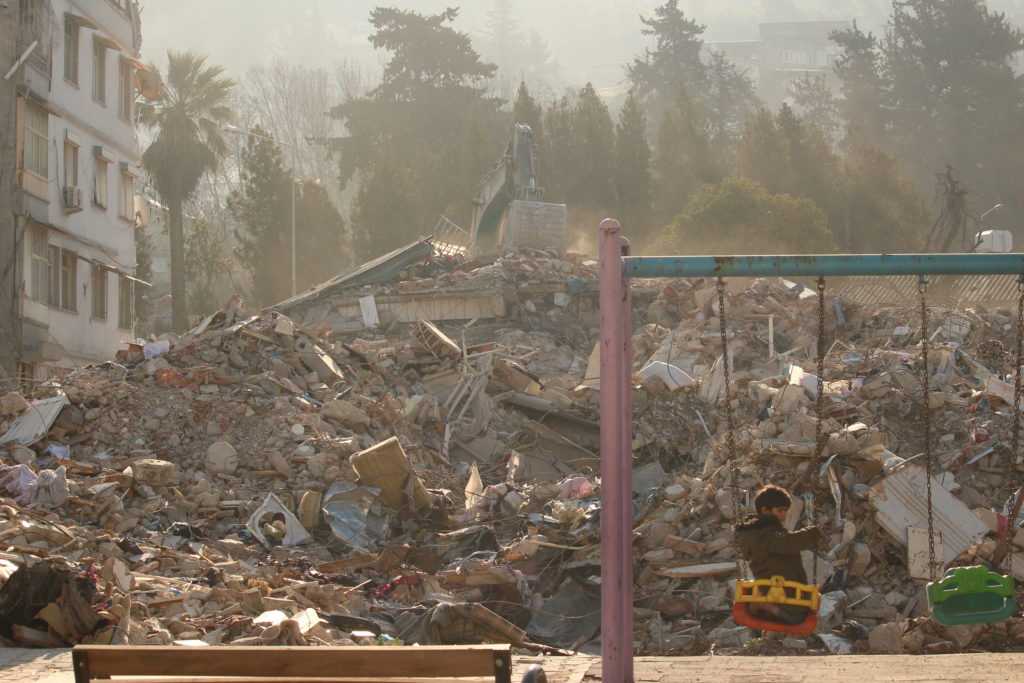
They went on to say that the highest need for them are blankets due to the cold temperatures at night. Currently, there is enough food, but they know this can change soon.
What they miss the most are not material things, but rather a community of people with which to share the experience. “It would be good if people were here with us, so that we would feel more encouraged and not feel that scared.”
This has been one of the most important lessons of the DART Assessment Team when they were in Türkiye. People need people. Right now, it does not matter the background, language or culture barriers. Survivors simply need other people to surround them and be with them in these ghost cities full of silence and desperation. This need for fellowship is definitely one of the main reasons why GAiN sent a DART team to the ground.
Memduh, Serpil and Beste expressed their gratitude: “Thank you to anyone who wants to help us and thank you to the church as well that has been helping us. Basically, they saved our lives. If they were not here to provide for us, I don’t know what we would do.”
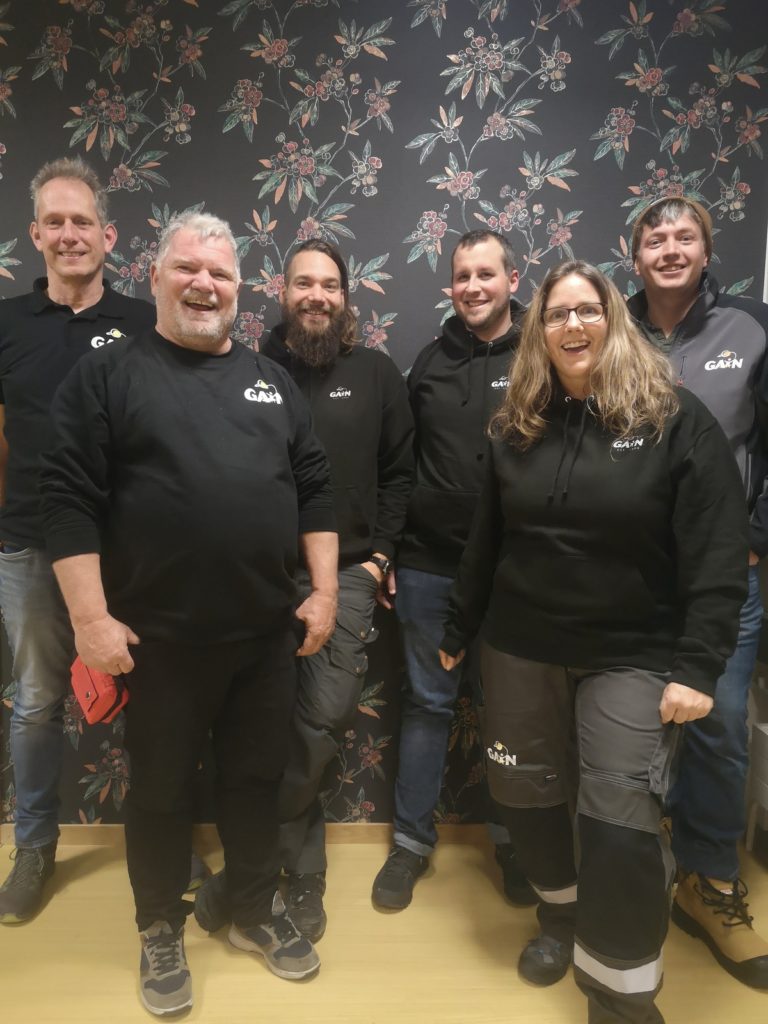
The following is is a message sent from the GAiN DART Team, who left for Turkey on February 22:
Greetings to the GAiN family and supporters.
We are still shocked by what we see around us in the disaster zone. We just spent the night in a house surrounded by mountains of rubble. A few meters from where we parked our car, a family of six was found under the rubble earlier in the morning the day we arrived. Three of them were still living! The cities are now ghost cities with no electricity, no running water, rubble everywhere, people gathering around the fires at night… It is like nothing we have seen before.
But still we see hope. Like this neighbor we met on the street where we are staying. His name is Süheyl and he and all his family survived the earthquake, even though his house is severely damaged. He is thankful and he can’t keep from explaining how his neighbors (the family from the church here who are hosting us) have helped him a lot.
We are currently deciding further steps with our local contacts, but the churches are mobilizing in the area with resources and volunteers, and we feel thankful to be here and come alongside such a surreal human landscape around us.
Please be praying for these brave people and for those who will be helped by them, and also for us to have clear guidance on how to help best.
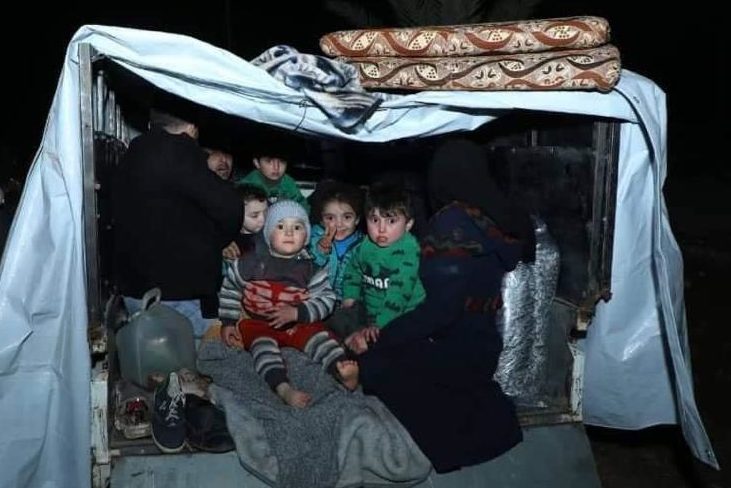
The aftermath of the earthquakes that shook Turkey and Syria on February 6 have continued to wreak havoc and death. This devastation comes at an already vulnerable and difficult time for both countries, with cold winter storms sweeping the region and an ongoing cholera outbreak threatening to further dishearten the people of Syria.
Sources report that over 43,885 people have lost their lives, tens of thousands have been injured across Turkey and Syria, and millions have been directly impacted. Numbers are steadily rising each day, and the need for support is growing more and more urgent.
“The needs are enormous, people are suffering and there’s no time to lose. I urge the international community to step up and fully fund this critical effort in response to one of the biggest natural disasters of our times,” said Turkey’s Secretary-General.
Along with GAiN worldwide, GAiN Canada is providing relief through our local partners in both Turkey and Syria by supplying items such as food, water, blankets, sleeping bags, tents, heaters, power suppliers (generators, power banks) and winter clothing.
GAiN Canada is also serving as the lead agent in Syria in light of our long history of working in the country. Our partner in Syria, Pastor Gamal of Damascus Evangelical Baptist Church, shared an encouraging story about how he and a team of 14 volunteers were able to distribute aid near the epicenter of the quake within days of the earthquake.
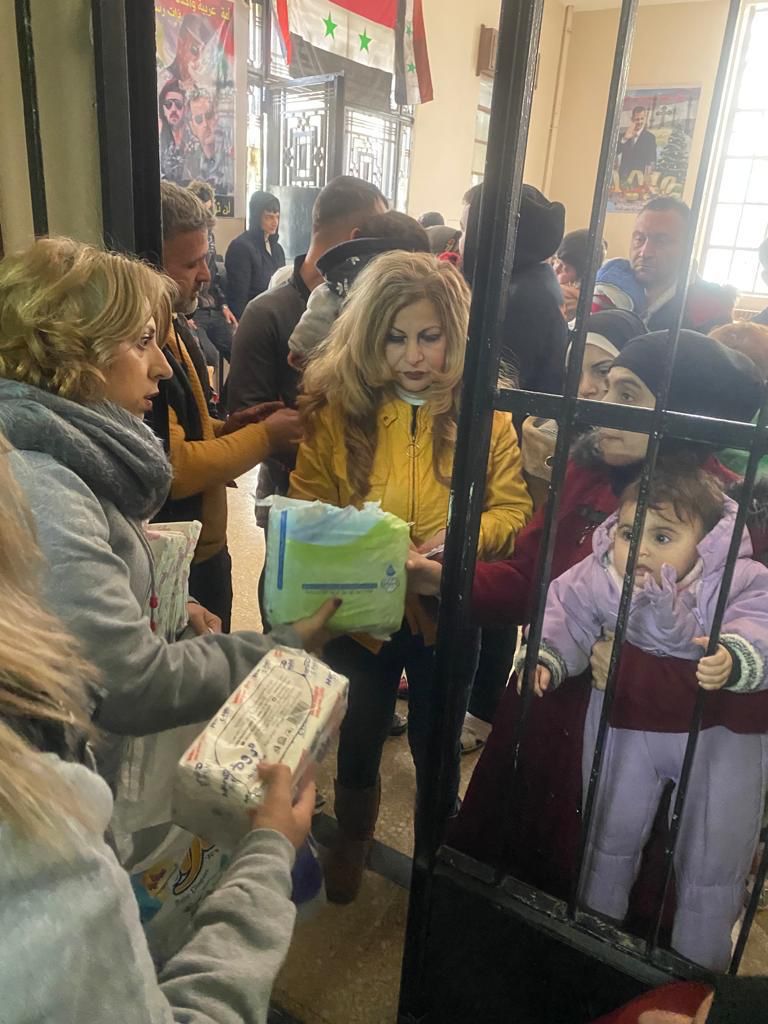
Prior to the trip, Pastor Gamal’s church hosted a service and took a love offering on behalf of people in Syria. Many congregants of the church attended, as well as people from the neighborhood who knew that volunteers were heading to Aleppo. Despite having barely any money themselves, these people generously gave a total of $1,000 US for Pastor Gamal and his team to buy materials such as blankets, clothing and food items for survivors of the earthquake.
After loading all the supplies onto a bus, the team drove seven hours to Aleppo. While there, they met up with a number of families who were displaced because of all the apartments that were destroyed in the earthquake. The team visited one apartment that was sheltering six families, as well as three schools that were hosting 600 families. They had the opportunity to visit with these families and prepare over 1600 sandwiches to feed them. Since there was no place to spend the night, the team drove seven hours back home to Damascus. We praise the Lord that in this time of exacerbated tension and destruction, He is faithful to provide for the needs of those he loves.
Among other updates, a DART team of three people travelled to Turkey this past Monday, February 13 to conduct an assessment of where GAiN’s help would be most effective. The team was able to reach the epicenter of the quake, and met with local partners to determine their needs and figure out if a GAiN DART team should come in and help.
Additionally, Pastor Gamal and a team of 16 volunteers will be travelling to another affected area tomorrow to distribute more relief. Their continual efforts demonstrate our joint commitment to supply food and non-food items to those affected in both countries.
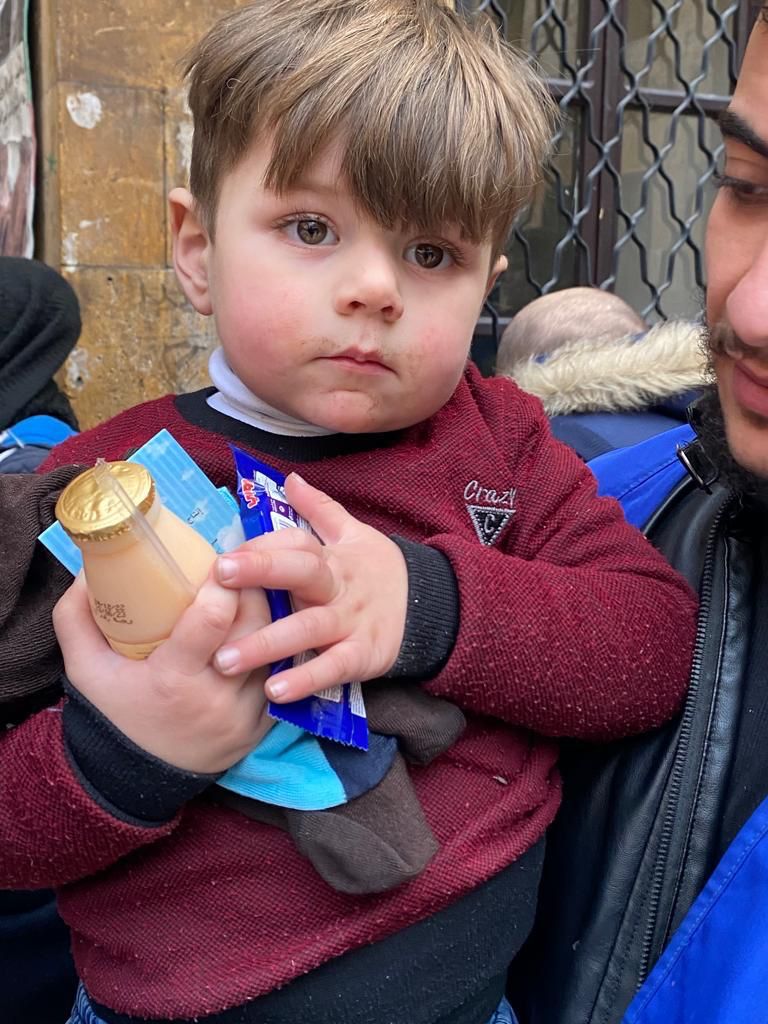
As we remain alert and updated on the situation, we ask that all our supporters would be in constant prayer for GAiN worldwide and our partners so that we may respond swiftly and effectively to the needs of those in Turkey and Syria. Together, we put our hope and trust in the Lord and know that in his sovereign timing, healing and peace will be restored to these countries.
Sources: CNN https://www.cnn.com/middleeast/live-news/turkey-syria-earthquake-updates-2-13-23-intl/index.html
The world continues to watch in horror as news reports flood in about the enormous earthquakes that struck regions of Turkey and Syria this past Monday morning on February 6.
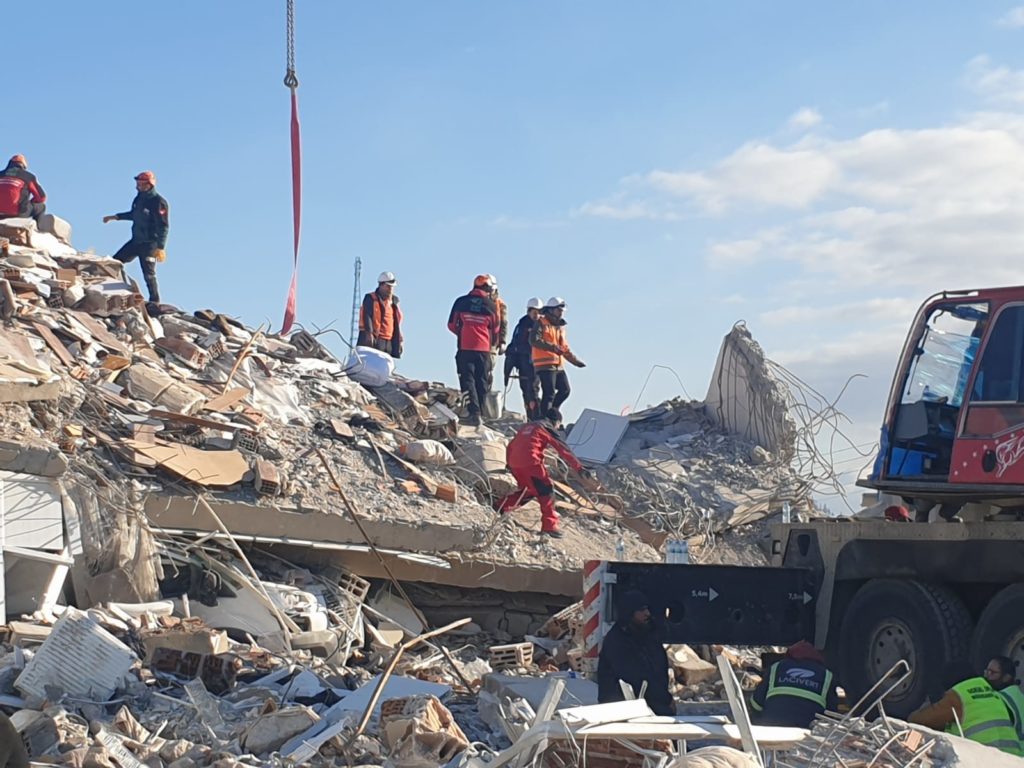
The number of people harmed by the earthquakes is steadily increasing, with over 36,000 dead and tens of thousands injured across Turkey and Syria.
“When I see the images and I close my eyes, my mind goes back to Haiti,” recalls Aaron Rogers, CEO and Executive Director of GAiN. “I can still smell the bodies decaying under the rubble. The only thought that goes through my mind is that we cannot do anything for those who have passed away, but we can be the hands and feet of Jesus to the survivors who are alive, hurting and grieving. We must offer them hope in what really seems like a hopeless situation.”
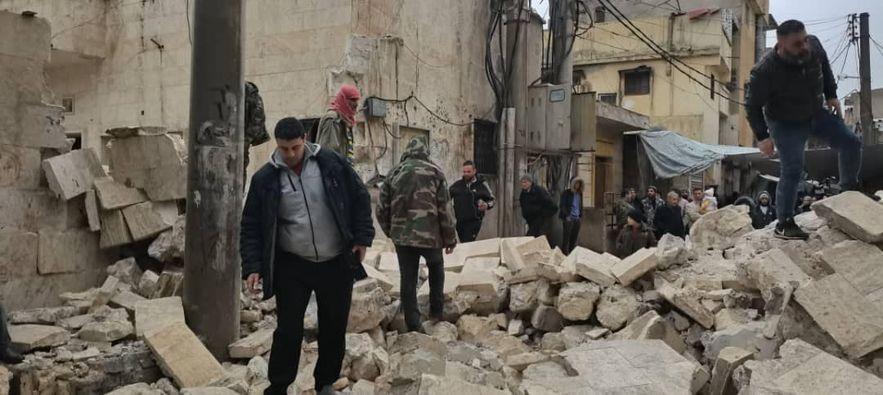
The earthquakes ravaged both countries at an already vulnerable and difficult time, when cold winter storms continue to sweep the region, and an ongoing cholera outbreak threatens to destabilize Syrian communities.
In response to this natural disaster, GAiN Canada, alongside our global network, provided relief through our local partners in both Turkey and Syria within days by providing items such as food, water, blankets, sleeping bags, tents, heaters, power suppliers (generators, power banks) and winter clothing.
GAiN Canada is also serving as the lead agent in Syria in light of our long history of working in the country. From March 2013 until spring of 2022, GAiN provided disaster relief to those affected by the ongoing civil war that has consumed Syria over the past decade. Bags of Blessings were given out to families who had been internally displaced (IDPs) and included food and other essential items like soap, detergent, heaters and blankets. By meeting their practical needs, GAiN sought to bring hope and a sense of comfort to people in Syria.
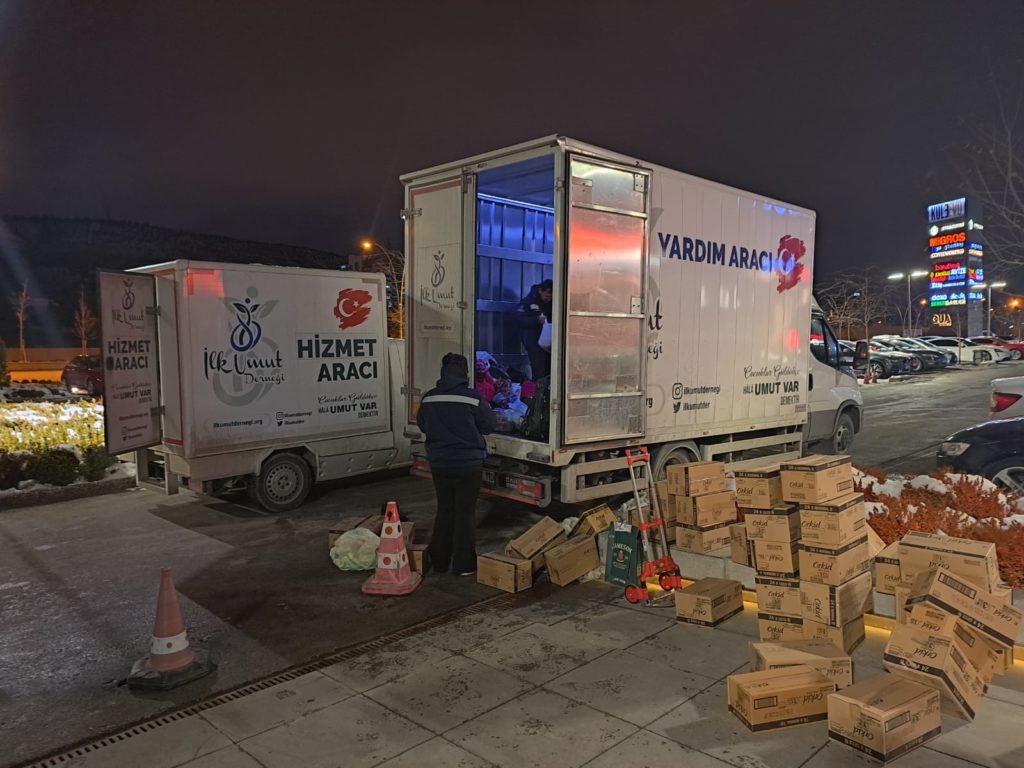
In this time of exacerbated tension and grief, we have been able to supply practical food and non-food items for those affected in both Syria and Turkey to ease some of the burden for those that have lost their homes and means of supporting themselves. Already we have seen the faithfulness of God move through the support of our donors, for which we are overwhelmed and incredibly thankful. Though the situation is grave and troubling to our hearts, we put our trust in the Lord to bring hope and healing to Turkey and Syria.
Romans 8:28: “And we know that in all things God works for the good of those who love him, who have been called according to his purpose.”
Sources: CNN https://www.cnn.com/middleeast/live-news/turkey-syria-earthquake-updates-2-13-23-intl/index.html
“It’s now a race against time. . .Every minute, every hour that passes, the chances of finding survivors alive diminishes.” -Tedros Adhanom Ghebreyesus, Director-General, World Health Organization
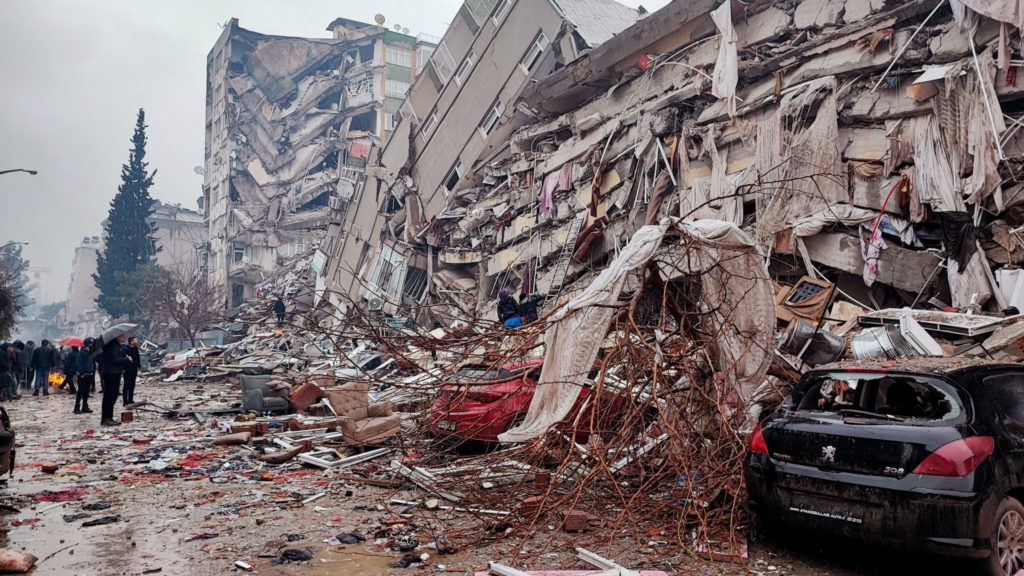
Sources estimate that over 11,000 deaths and 38,000 injuries have happened in Turkey and north-west Syria as a result of an enormous earthquake that struck southern Turkey at 4:17 am on February 6. Measuring at a magnitude of 7.8, this is the most powerful earthquake to be recorded in Turkey since 1939.
A second earthquake of 7.5 magnitude occurred at 1:24 pm with the epicenter in Ekinozu/Kahramanmaras province, following 78 recorded aftershocks. The Government of Turkey has declared a three month emergency in 10 provinces hit by the devastating earthquakes and several aftershocks.
The earthquake’s impact on north-west Syria is especially devastating, considering that 4.1 million people, primarily women and children, are already dependent on humanitarian assistance. In addition to the upheaval caused by the earthquake, Syrian communities are dealing with an on-going cholera outbreak and harsh winter weather, including heavy rain and snow over the weekend.
Hundreds of thousands of people in Turkey and Syria have spent the night in their vehicles, crowded into sports centers and shelters, or on the streets trying to keep warm with makeshift fires. Their homes are either a pile of rubble, significantly damaged or at great risk of becoming destroyed with each passing hour. Authorities fear that the final death toll could be much higher.
With severe winter storms currently sweeping through the region and compounding the misery for survivors, families urgently need life-saving shelter and assistance.
There is great fear and uncertainty for people affected by the devastating earthquake.
Will you join us in praying and in providing life-saving emergency aid to those in Turkey and Syria?
Through our local partners in both Turkey and Syria, we are providing much-needed items such as food, water, blankets, sleeping bags, tents, heaters, power suppliers (generators, power banks) and winter clothing. GAiN worldwide is responding to the situation together, with GAiN Canada serving as the lead agent for Syria and GAiN Spain serving as the lead agent for Turkey.
Those affected are in desperate need of hope, peace, provision and protection. The need for aid is critical.
We can’t do anything for those who have passed away, but we can be the hands and feet of Jesus to the survivors who are alive, hurting and grieving. We must offer them hope in what really seems like a hopeless situation.
Our goal is to raise $250,000 toward providing emergency relief. You can help make a significant impact in Jesus’ name.
Sources: OCHA, The Guardian, El País, CNN, NY Daily News

